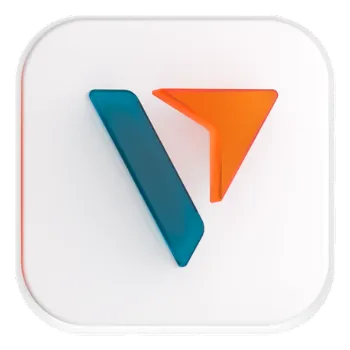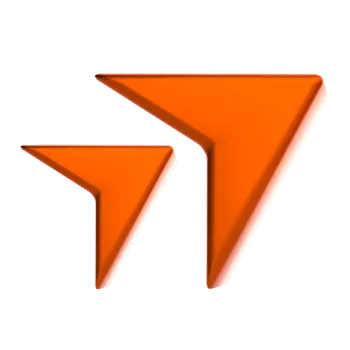Want to know about CFD trading in the commodity market? Read on and find out everything you need to know about CFD commodities trading, including how they work and how you can trade them.
Key Points
- Commodities CFDs (Contracts for Difference) are financial derivatives that enable investors to speculate on the price movements of various commodities, such as gold, silver, oil, and agricultural products, without owning the physical assets.
- Commodities CFDs work by tracking the price changes of the underlying commodities, allowing traders to make a return from the difference between the opening and closing prices without the need to handle the actual physical commodities.
- Commodities CFDs offer a flexible way to invest in various commodity markets, allowing traders the ability to go long or short and providing the flexibility to trade on margin.
What are Commodity CFD Markets?
Commodity Contracts for Difference (CFDs) are derivatives that allow traders to speculate on the future price movements of commodities in the markets. Initially, commodity markets involved only producers, consumers, and other financial institutions like investment banks.
As a retail trader with lower capital, you can use CFDs to participate in commodity markets and speculate on the price movement without actually owning the underlying assets — in this case — the commodity itself.
Before we get into how you can trade commodities CFDs, let’s explore some essential concepts.
What are Commodities?
Commodities are materials like gold, silver, and crude oil which exist naturally in the ground. Produce from agriculture and livestock also count as commodities. Commodities are essential in food, clothing, and energy production in all economies.[1]
Many countries produce commodities in bulk. For this reason, commodities are standardised based on quality and quantity. This way, commodities will have similar pricing regardless of the producer. However, any price change in commodities can have a massive impact on an economy and publicly-listed companies in particular.
It can also have an impact on a trader’s everyday life. Ever wonder why sometimes you have to pay more at the pump for fuel? That can happen when there’s a price increase in the oil and natural gas markets.
Classifying Commodities
Commodities fall under two main categories: soft commodities and hard commodities.
- Soft commodities are products of agriculture or reared livestock. In this case, commodities like coffee, wheat, and cotton are soft commodities.
- Hard commodities are minerals extracted or mined from the earth. Excellent examples of commodities include oil, gold, and copper.
However, trading platforms can categorise commodities differently, such as using these four sub-categories:
- Energies – These markets deal with natural energy sources, including crude oil, natural gas, and heating oil.
- Metals – The metals subcategory deals with mined precious metal commodities like copper, platinum, gold, and silver.
- Agricultural — This subcategory covers all products grown for food consumption, clothing, or building materials. They include cocoa, sugar, and lumber.
- Livestock and Meat — This subcategory is for animals reared for meat and other products like gelatin and leather. You’ll find all animal products here.
Factors Affecting Commodity Prices
Several factors drive the prices of commodity markets. Let’s look at some:[2]
- Supply and Demand – Supply and demand market forces determine the price of commodities. The general principle here is: an increase in demand for a commodity will cause its price to rise. If there’s a shortage in inventory or a reduced supply, that also causes a price increase. A decrease in demand will make commodity prices drop.
- Politics and Geopolitical Situations – A change in country, regional or global policy can affect the price of commodities. For example, commodity prices will reduce if your country reduces import taxes. Conflicts and wars can also affect commodity prices. War stops production processes, affects currencies, and cuts supply routes, leading to shortages.
- Competition – Alternative sources of energy, for instance, compete against crude oil and natural gas. Since there’s a global drive towards renewable energy sources, governments and companies are slowly moving away from petroleum and natural gas.[3]
- Macroeconomics – If your country’s economy is weak, your demand for commodities reduces. In turn, prices will drop. Booming economies cause commodity prices to skyrocket, especially in the construction and transport industries.
- Currency Movements – Most commodities use USD pricing. Whenever the U.S. dollar price fluctuates, so does the cost of commodities. If, for instance, the USD gains sharply against a basket of other major currencies, it becomes cheaper to buy commodities with the dollar.

How CFD Commodities Work
Commodity CFDs are similar to CFDs in other asset classes. They share features such as leverage margin and have similar trading fees. CFD commodities trading also carry the double-edged sword of profit and loss. While you can potentially make profits in both bull or bear markets using CFDs, there is also a higher risk of losing your capital.
Let’s look at the features of Commodity CFDs.
1. Leverage in Commodity CFDs
Commodity CFDs use leverage. Leverage increases your exposure in the commodity markets without paying for the total cost of the asset upfront.
Leverage in Commodity CFD trades holds massive opportunities for profits and risks of losses. Your profit and loss depend on the full size of your position, not just your invested capital. Without proper risk management strategies, you can make losses that exceed your invested capital.
2. Margin in Commodity CFDs
Margin is the minimum capital your account requires to open a CFD position. In most cases, your broker requires your account to have two types of margin:
- Deposit margin
- Maintenance margin
The deposit margin is what you require to get started. You need your deposit margin to open a leveraged commodity CFD position.
On the other hand, maintenance margin keeps your commodity CFD positions open. Suppose an open trade in your account moves toward incurring losses. Your deposit and other additional funds in your account can cover that trade. If these funds are insufficient, your trading platform uses your maintenance margin to keep those positions open.[4]
Without maintenance margin, your broker will stop you out of your positions. You’ll also receive a margin call which is a request to top up to your trading account with more funds.
Fees in Commodity CFD Trading
Commodity trading using CFDs incurs costs that are pretty similar to trading other CFDs. They are:
- Spread – Spread is the difference between the buying and selling prices of the commodity. Every commodity CFD trade you make pays a spread. Tight spreads are better since any slight movement towards your predictions means greater gains.
- Commissions – Depending on your broker or jurisdiction, you may be required to pay commissions when you trade some CFDs.
- Market Data Fees – If you want to access data that can help you make better trades, you may pay market data fees for updated information on all commodities.
- Holding Charges – To maintain a position open overnight, you may have to pay your broker holding fees. These fees vary, depending on whether your open trades are profitable or not.
How to Trade Commodities
You can get started trading Commodity CFDs today with these quick steps:
- Open and fund your online CFD trading account
- Develop a trading strategy
- Choose your Commodity CFD
- Open your first position
- Monitor and close it
1. Create and Fund Your Trading Account
It’s pretty user-friendly to set up a new account for your Commodity CFD trading. First, select your CFD broker and follow some steps to open an account on their website. Once you’ve verified your account details with your ID and proof of address, your broker gives you instant access to all CFD markets.
Next, fund your account by connecting your credit/debit card or bank to your trading account. Take advantage of them to kickstart your trading journey.
2. Develop a Trading Strategy
After that, create a trading strategy that can help you manage your risk and capital. A trading strategy also may help you potentially plan out your profits and acceptable losses. To trade successfully, use fundamental and technical analysis to study the commodity markets before entering a CFD position.
3. Choose Your Commodity Market
Choose the commodity you’d like to trade based on your strategy on your live account. Another excellent way to choose commodity markets is to watch for global trends and breaking news.
You can opt for top commodities like gold, silver, and crude oil. If you’re a bit more experienced, you can also try out other markets like coffee, cocoa, and sugar.
4. Open Your First Commodity CFD Position
Based on your strategy, you can open a long or short position on one or multiple commodities.
Make sure to put a stop loss and limit on all your open positions. In case the trade goes against your prediction, you’ll only incur a minor loss.
5. Monitor Your First Position and Close It
Once you open your first position, you can monitor it over your chosen period. You can keep your trading platform open on your PC or track it with your phone app. You can also opt for trading alerts through emails, SMS, and push notifications.
If the position moves in your favour, close it and take your potential returns. If the position moves against you, you can still exit the position and spare yourself from further losses and losing your money.
Final Thought
Commodity CFDs create an opportunity for retail traders to speculate on the prices of commodities without buying them.
Start Trading with Vantage
Access markets including forex, commodities, indices, shares/stocks and more, at low cost.
Start trading CFD stocks by opening a live account here, or practice trading with virtual currency with a demo account.
You can also sign up for our free, weekly webinars that will break down the current markets as well as discuss potential trade set ups for the week.
References
- “Commodities: Definition, List, Examples, Trading Market – The Balance.” . https://www.thebalance.com/what-are-commodities-3306236 . Accessed 7 Apr 2022.
- “What Causes Oil Prices to Fluctuate? – Investopedia.” . https://www.investopedia.com/ask/answers/012715/what-causes-oil-prices-fluctuate.asp . Accessed 7 Apr 2022.
- “Clean Energy Rises: Is This The Death Of The Petroleum Industry?.” https://www.forbes.com/sites/mikepatton/2021/02/21/clean-energy-rises-is-this-the-death-of-the-petroleum-industry/ . Accessed 7 Apr 2022.
- “Maintenance Margin Definition – Investopedia.” . https://www.investopedia.com/terms/m/maintenancemargin.asp . Accessed 7 Apr 2022.



